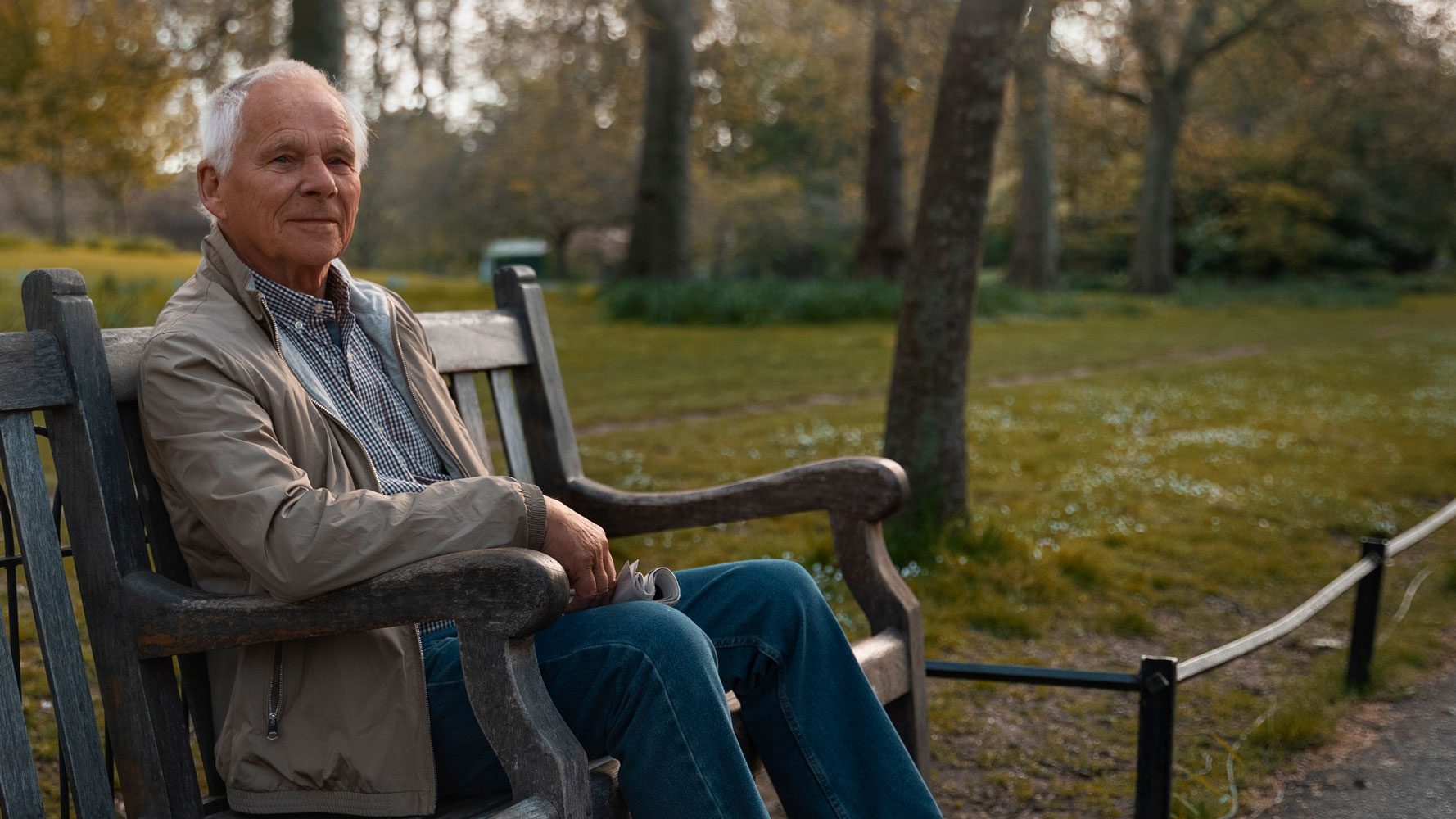Depression is a serious yet often overlooked mental health issue affecting many older adults. While feelings of sadness or grief are natural responses to life events, depression goes beyond temporary emotional distress. It is a medical condition that significantly impacts an individual’s mood, energy levels, physical health, and overall quality of life. Unfortunately, depression in older adults is frequently underdiagnosed or mistaken for normal ageing, leading to unnecessary suffering and a decline in well–being.

Understanding Depression in Older Adults
Did you know that over 1 in 10 older adults and more than 3 in 10 people living in residential aged care experience depression?
Older adults face unique life circumstances that may increase their vulnerability to depression. The loss of loved ones, declining physical health, chronic pain, reduced independence, and social isolation can all contribute to feelings of hopelessness or despair. Retirement, while often seen as a time to relax, may also lead to a loss of purpose or daily structure. Additionally, some medications prescribed for chronic illnesses may have side effects that worsen mood.
It’s important to recognise these challenges and know that depression is not an inevitable part of ageing — support is available, and help can make a real difference.
What are the risk factors for depression?
Several factors can increase a person’s risk of developing depression. While genetics play a key role, in some cases, changes in brain chemistry or structure can influence mood and lead to depression. Major life events, such as receiving a serious medical diagnosis or losing a loved one, can also trigger depressive episodes. High levels of stress, particularly among individuals caring for loved ones with chronic illness or disability, may contribute to depression as well. However, depression can sometimes arise without an obvious cause.
Signs and Symptoms
Emotional symptoms such as persistent sadness, irritability, or a sense of hopelessness are common. This may also be compounded by a loss of interest in hobbies, social activities, or relationships that were previously enjoyed.
Physical symptoms can also often accompany depression. These may include fatigue, unexplained aches and pains, changes in appetite or weight, and sleep disturbances such as insomnia or excessive sleeping. Cognitive signs, including forgetfulness, difficulty concentrating, or slowed thinking, can easily be mistaken for the early stages of dementia, which can delay proper diagnosis.
Social withdrawal, neglect of personal care, and a general lack of motivation are also potential indicators that an older person may be struggling with depression.
Why Depression Often Goes Unrecognised
There are several reasons why depression in older adults is frequently overlooked. Stigma plays a significant role. Many older individuals grew up in a time when mental health was rarely discussed, leading them to hide their feelings or believe that depression is a personal weakness rather than a medical condition.
In some cases, the symptoms of depression overlap with physical health problems common in older adults, such as fatigue, sleep difficulties, or reduced appetite. Healthcare providers and family members may mistakenly attribute these signs to ageing or chronic illness rather than considering depression as a possible cause.
Communication barriers also contribute to underdiagnosis. Hearing loss, cognitive impairment, or language differences can make it harder for older adults to express how they feel, leaving their depression unnoticed.
The Importance of Early Identification
Recognising depression early in older adults can prevent a decline in mental and physical health. Untreated depression increases the risk of falls, worsens existing medical conditions, and contributes to social isolation and loss of independence. Most concerning, depression in older adults is linked to an increased risk of suicide, particularly among older men.
Healthcare providers and aged care staff play a crucial role in identifying depression. Regular mental health screenings using simple, validated tools, such as the Geriatric Depression Scale, can help detect depression early. Beyond formal assessments, spending time engaging with older adults, listening to their concerns, and observing changes in mood or behaviour are invaluable in recognising when someone may need support.
Our custom software can take your care needs, location, budget, and personal preferences and match you with available home care providers in your area. We can then send you a tailored options report that you can use to compare different home care providers quickly and easily.
Supporting Older Adults with Depression
Supporting an older adult with depression requires patience, compassion, and a holistic approach. Emotional support is vital. Encouraging regular social interaction, whether through family visits, community groups, or organised activities, can also help reduce feelings of loneliness and isolation.
Psychological therapies, such as Cognitive Behavioural Therapy (CBT), have been shown to be effective in treating depression in older adults. Talking to a trained mental health professional can further help individuals understand and challenge negative thought patterns, while providing coping strategies to manage their emotions.
In some cases, medication such as antidepressants may be prescribed, particularly for moderate to severe depression. It is essential to monitor for side effects and potential interactions with other medications, especially given the complex health needs of many older adults.
It’s important to remember that depression in older adults can often be overlooked or mistaken for ‘just getting older.’ That’s why checking in with a GP is the best first step if you’re concerned. A GP can assess what’s going on and guide you and your loved one toward the right support.
Why Understanding Depression Matters When Choosing Aged Care
Depression is a significant concern for older adults, with many facing increased risks due to life changes, health challenges, and social isolation. For families exploring aged care options, being aware of these risks is critical to making the best possible choice for their loved ones.
At Aged Care Decisions, we understand that choosing the right care environment isn’t just about physical needs – mental and emotional well-being matter too. Factors such as losing a spouse, receiving a medical diagnosis, or experiencing high levels of stress can all increase the risk of depression, making the decision around aged care even more important.
Whether you’re considering home care, assisted living, or residential aged care, we help you navigate the options to find a setting that offers not only the right level of care, but also opportunities for social connection, emotional support, and mental health services.
By recognising the role depression can play in the lives of seniors, families can make more informed decisions.
Resources and Support
For more information on resources and support available, click here.
How We Can Help
When depression affects someone you love, knowing where to turn can feel overwhelming — but you’re not alone.
We work side-by-side with families to help ease the uncertainty that comes with finding the right mental health support. Our FREE, independent service gives you clear, tailored options for care — based on your needs, your location, and your loved one’s situation, including support for depression.
Some of the ways we can help include:
✔ A personalised list of mental health support services that suit your circumstances
✔ Up-to-date information on available services, costs, and wait times
✔ Access to providers experienced in supporting people with depression
Navigating the mental health system can feel complicated on top of what can already be a stressful time — but getting the right help doesn’t have to be. We’ve supported thousands of families in finding care, with less stress and more confidence.
If your loved one is struggling with depression and you’re not sure where to start, we’re here to help.
Take the first step today. Get clear options. Feel supported at every turn.
We’re Australia’s largest aged care comparison service — fast, free, and focused on what matters most: your loved one’s wellbeing. Let’s get started.







